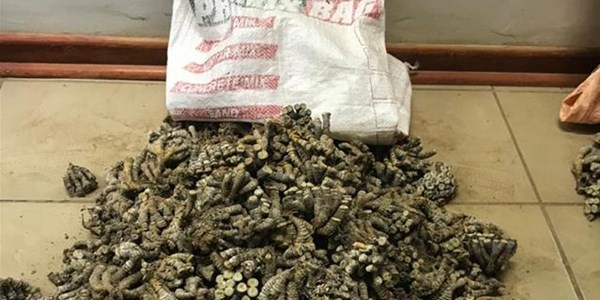Central SA
Endangered plant smuggling increases in NC─── 13:16 Tue, 12 Jan 2021

A recent ‘buy and bust’ that took place in Upington, Northern Cape, resulted in ten suspected smugglers of endangered plants being arrested.
The suspects, aged between 24 and 37, were in possession of six different types of indigenous Conophytum plant species amounting to over 7000 plants.
Police spokesperson, Mohale Ramatseba, says the plants are valued at nearly R400 000. Two vehicles, a Chevrolet bakkie and Toyota Corolla, were confiscated by police as they were used in the commission of the crime, adds Ramatseba. The suspects are remanded in custody and the case has been postponed to 14 January for bail applications.
The rise in such crimes warrants investigations into the market created for these particular plants.
Captain Karel du Toit tells OFM News that these plants are being sold to the Chinese market for large amounts of money. He adds that such crime syndicates usually pre-plan these events to such an extent that two or three getaway cars are used in an operation.
Evidently, the syndicates who commit these crimes are unaware of the damage they cause as the extraction methods used do not provide room for restoration of the extracted, discarded plants. It is nearly impossible to save these plants once they have been dug up explains, Du Toit. This is due to the delicate climate, the plants’ fragility, and the almost 200-year long process to establish such a plantation.
Plant smugglers are known to exploit and make use of unemployed South Africans, who are desperate to generate any form of income.
In addition, plant expert Dr Lize Joubert tells OFM News that the uniqueness of these plants arises from their habitat, their succulence and their specificity. She adds that plant connoisseurs embark on a lifelong footrace to collect and grow these uncommon plants merely for possession purposes. The plants’ rarity is the consequence of the rise in its black-market value.
Results of plant smuggling and plant excavation may at times lead to entire plant populations being wiped out forever, concludes Joubert.
OFM News/Shirndré-Lee Simmons













